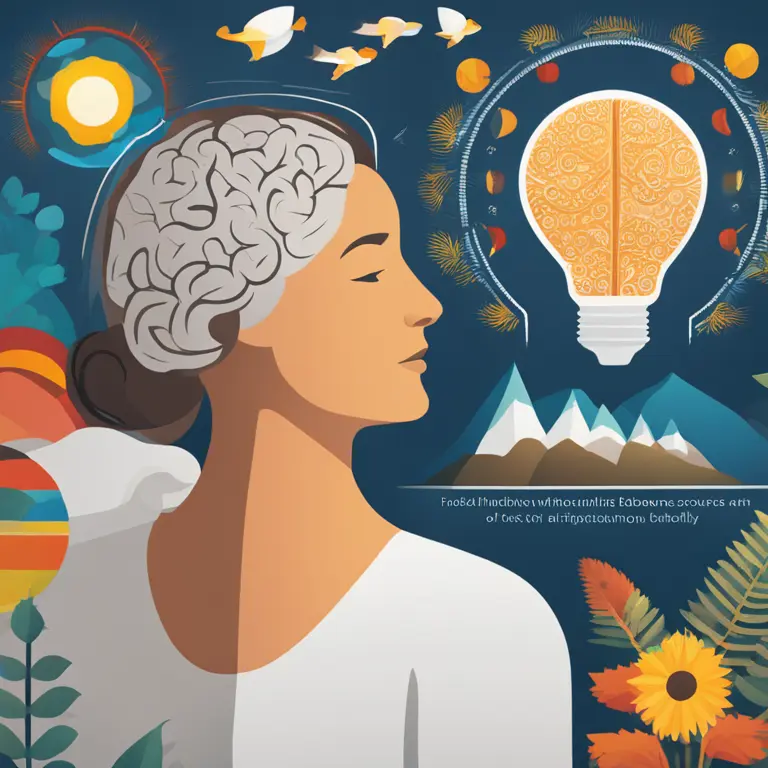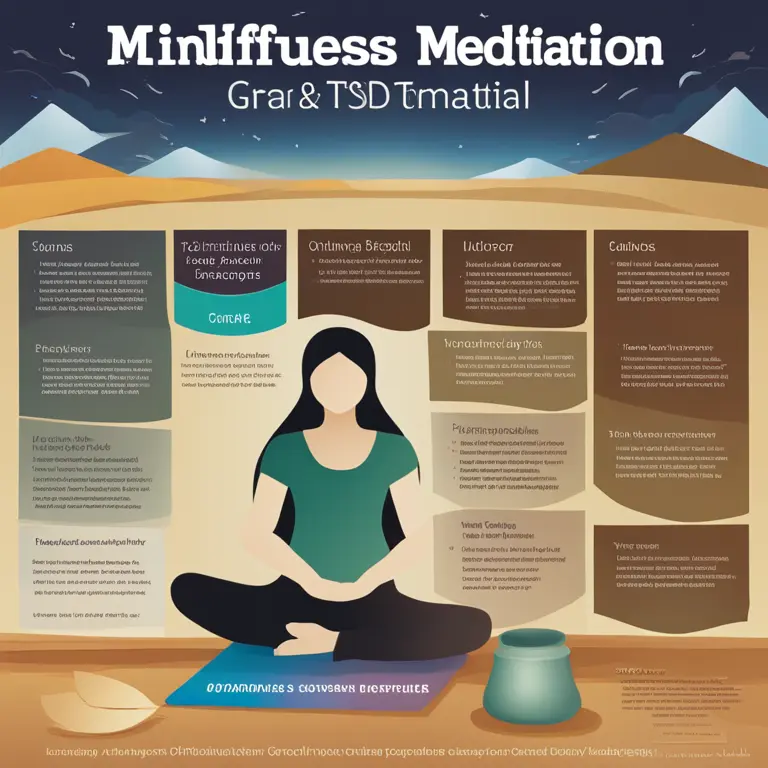
Healing Through Mindfulness: Meditative Practices for PTSD
Discover the transformative power of mindfulness meditation on the journey to recovery from PTSD in this insightful article.
article by Hina Kurosawa
The Foundation of Mindfulness for PTSD Recovery
Mindfulness meditation has emerged as a gentle yet powerful tool for managing symptoms of Post-Traumatic Stress Disorder (PTSD). Grounded in the ancient traditions of Buddhist meditation, mindfulness involves present-moment awareness and acceptance, without judgment, of one's thoughts, feelings, and bodily sensations. In the context of PTSD, this can be particularly therapeutic, as sufferers often face intrusive memories and intense emotional turmoil. Mindfulness provides a means to anchor oneself in the present, fostering a sense of safety and aiding in emotional regulation—a cornerstone of healing from traumatic experiences.

Scientific Backing of Mindfulness Meditation
Recent advancements in neuroscience have revealed that mindfulness techniques can positively influence brain regions implicated in PTSD, such as the amygdala, prefrontal cortex, and hippocampus. Studies conducted in the past decade affirm that regular mindfulness practice can reduce hyperarousal, decrease avoidance behaviors, and improve overall stress resilience. Therapy modalities integrating mindfulness, including Mindfulness-Based Stress Reduction (MBSR) and Mindfulness-Based Cognitive Therapy (MBCT), have gained widespread acceptance as efficacious adjuncts to conventional PTSD treatments like cognitive-behavioral therapy and medication.

Embarking on the Meditation Journey
For those new to mindfulness meditation, starting with guided sessions led by trained instructors can offer supportive scaffolding. Engaging initially in brief periods of meditation can help in acclimatizing to the practice without becoming overwhelmed. Gradually, one can extend the duration as comfort and confidence build. Key components of mindfulness meditation include focusing on the breath, noting bodily sensations, and acknowledging thoughts and emotions without becoming entangled in them—a process that can be particularly liberating for individuals with PTSD.

Cultivating Mindfulness Beyond Meditation
Mindfulness is not confined to the cushion or mat—it is a practice that can be integrated into daily life. Individuals can cultivate mindfulness during everyday activities like walking, eating, or even while performing mundane tasks. Such an approach not only reinforces the meditative mindset but also helps bridge the gap between formal meditation and the chaos of real life. For those with PTSD, cultivating mindfulness throughout the day can reduce the occurrence of being caught off-guard by distressing triggers.

Overcoming Challenges in Mindfulness Practice
While mindfulness has profound potential benefits, it's not uncommon for some with PTSD to encounter difficulties, such as heightened anxiety or flashbacks, when attempting to meditate. In these instances, working with a mental health professional trained in mindfulness-based therapies becomes essential. They can provide the necessary guidance to navigate these challenges safely and adapt the practices to meet the individual's unique needs, ensuring a supportive and therapeutic experience.
Sustaining Mindfulness Practice for Long-Term Benefits
Commitment to regular mindfulness practice is essential for reaping its benefits for PTSD. Over time, the practice can facilitate a shift in one's relationship to past traumas, leading to enduring changes in emotional wellbeing. As both a therapeutic tool and a lifestyle choice, mindfulness encourages growth, self-compassion, and a gradual return to a life less dominated by the shadows of the past. With sustained effort, individuals with PTSD can discover a path to lasting peace and resilience.
Published: 1/18/2024
Modified: 1/18/2024
More predictions
Come back here soon to learn more about yourself and your future


A Short Guide to Mindfulness Meditation
Embark on a journey of self-awareness and tranquility with this comprehensive guide to mindfulness meditation.


The Connection Between Meditation & Mindfulness
Discover the relationship between meditation and mindfulness, and how these practices contribute to mental clarity and inner peace.


Mindfulness & Meditation: Enhancing Cognitive Flexibility
Discover how mindfulness meditation can foster cognitive flexibility, improving your ability to adapt to new situations and think creatively.